The Impact of Playful Teachers
Stories from Zambia
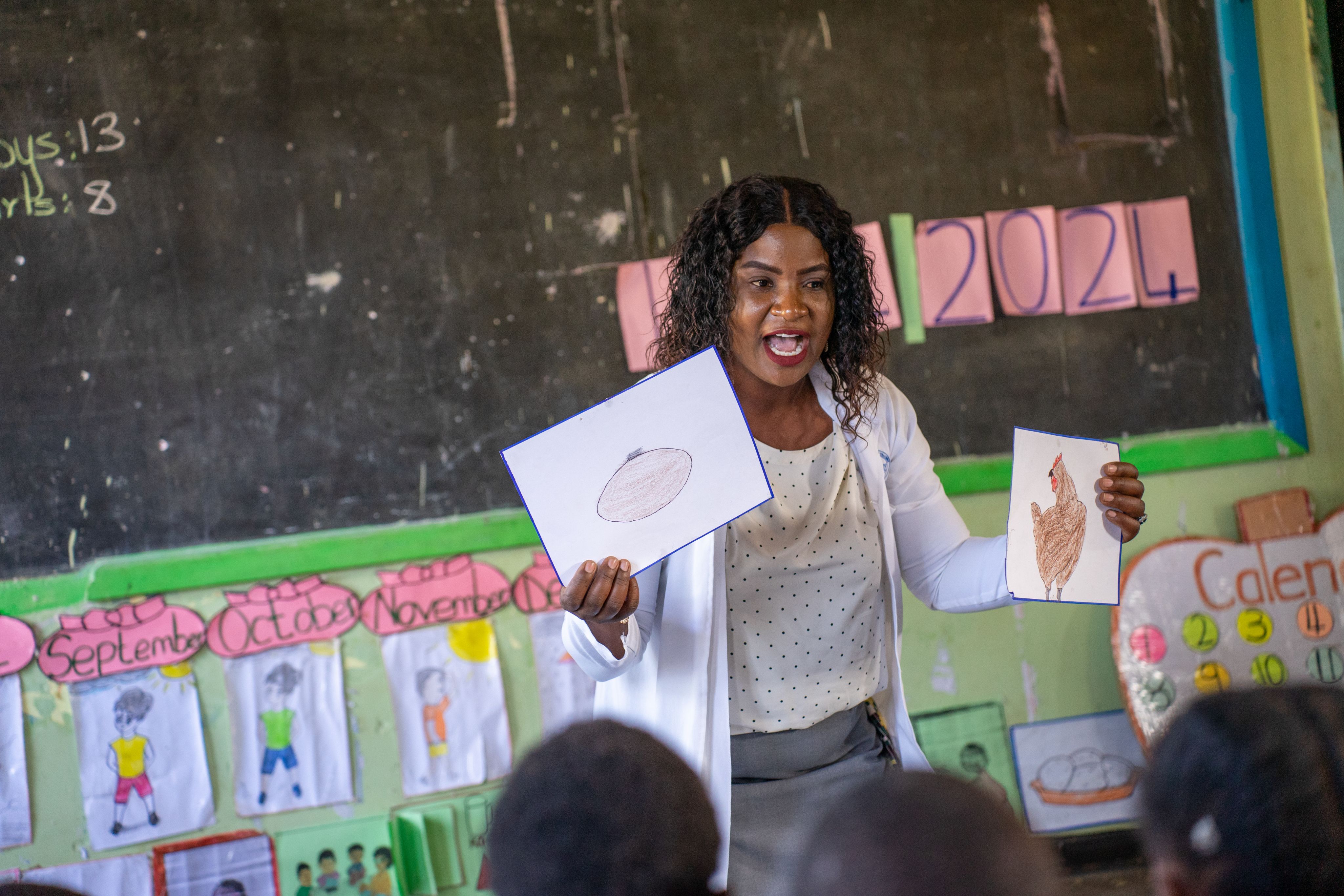
As we mark World Teachers' Day on 5 October 2024, it’s a fitting moment to shine a spotlight on how teachers are transforming education in Zambia through using play-based methodologies. This is possible thanks to their commitment, motivation as well as access to ongoing teacher professional development opportunities.
When 6-year-old Blessings returns home from school each day, she drops her school bag at the front door and rushes out to the street to find her friends to play with. Not all her friends are enrolled in school, so Blessings teaches them what she’s learning in her early childhood education (ECE) class. Currently, it’s maths. Blessings’ teacher, Emelda, taught her games to learn numbers, and that’s exactly what she now passes on to her friends, much to her grandmother Jane’s surprise.
Across the city of Lusaka, 10-year-old Frank is following suit. According to his father Simon, Frank was considered a “slow learner” and struggled to participate in class when it came to reading, and mathematical problems. But now, Frank is more sociable, confident and excited for school, especially maths. He taught his father how to make a ball from cardboard and tape and cover it in numbers. Now he throws it to his friends, demanding they respond to equations as their fingers fall on different numbers. In a country where many learners struggle with foundational literacy and numeracy (FLN) skills, the stories of Blessings and Frank are powerful testaments to the desire children have to learn when they receive a quality education.
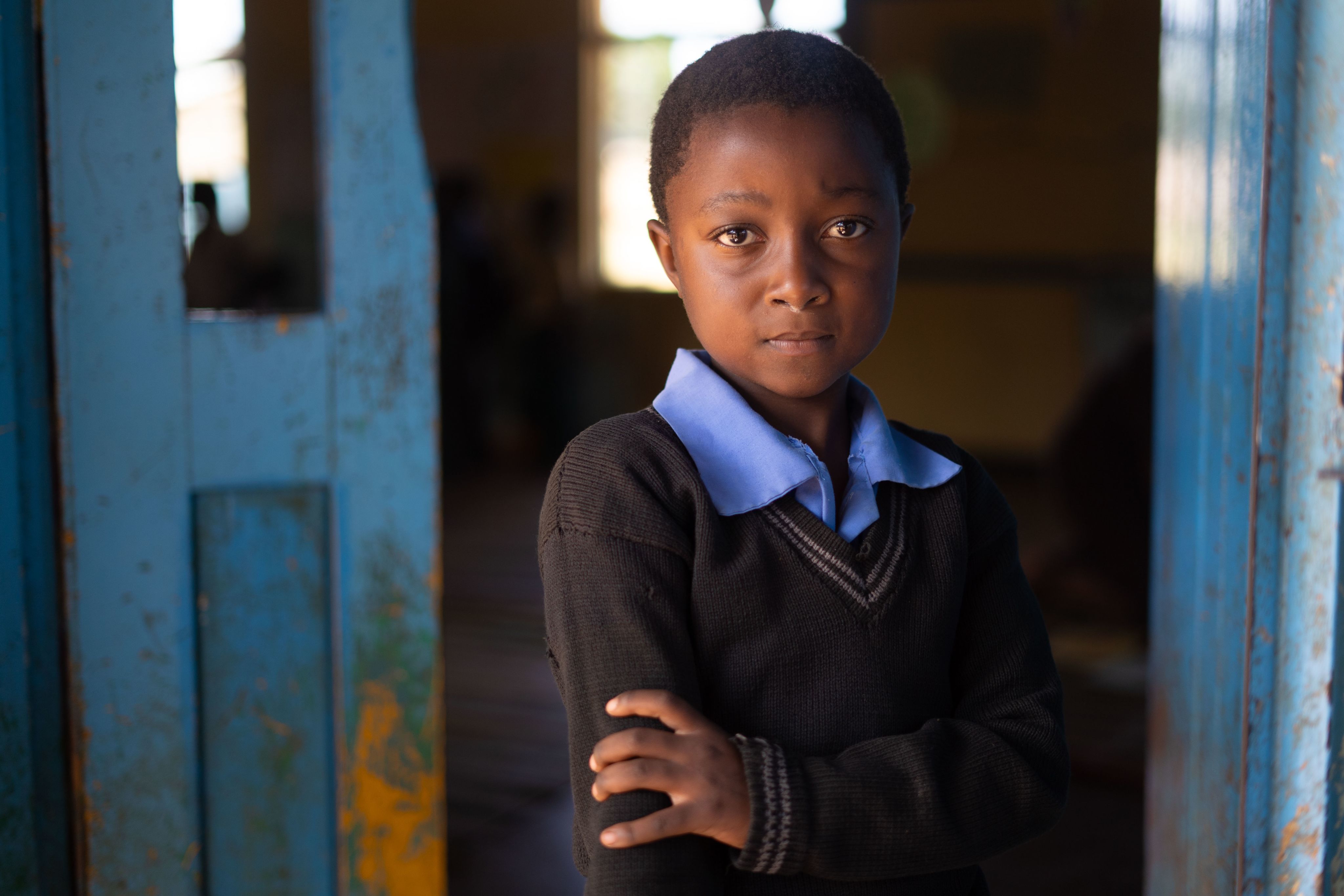
Spotlight on Zambia
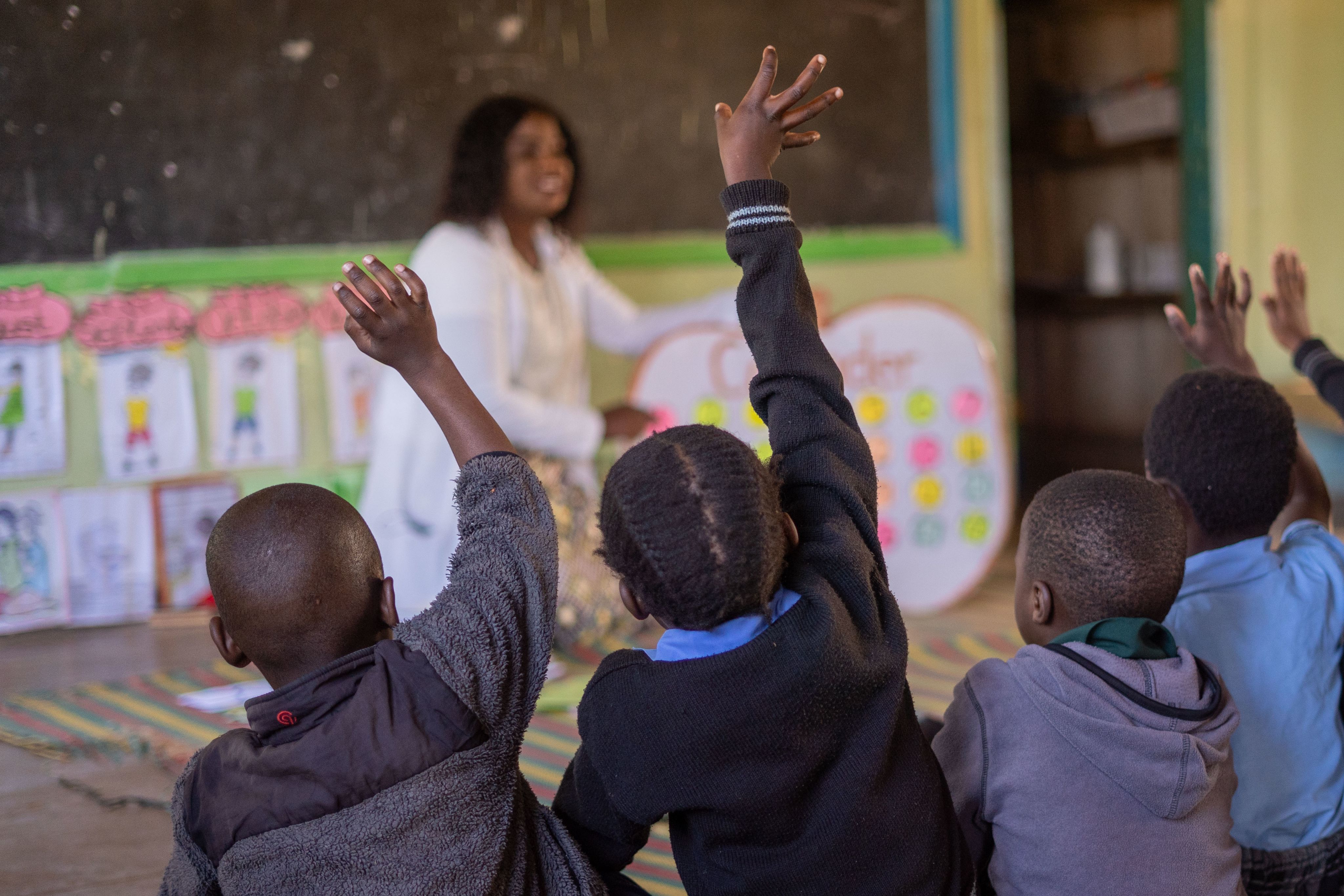
According to the recent Global Education Monitoring Spotlight Report on Zambia, less than two in every ten learners (14%) in Grade 4 are achieving the basic proficiency in maths required for Grade 2/3. When it comes to reading, almost nine out of every ten learners are not able to read at the minimum level required for Grade 2. The Provincial Education Officer, Felix Ngoma for Lusaka Province says that in a worst-case scenario, some learners reach Grade 12 without being able to read.
While the reasons for learning losses are varied and a multifaceted approach is needed, the play-based learning approaches which Frank and Blessing are enjoying in school show promising results. VVOB is working in partnership with the Ministry of Education in Zambia to address the educational challenges evidenced by the country’s low learning outcomes. On the one hand, we have the Catch-Up Programme also in partnership with Teaching at the Right Level Africa and UNICEF offering an accelerated remedial learning programme, the one in which Frank is enrolled. On the other hand, we have the IT’S PLAY programme, which integrates play-based learning methodologies into early childhood education and is enjoyed by Blessings.
A Focus on Playful, Child-centred Learning
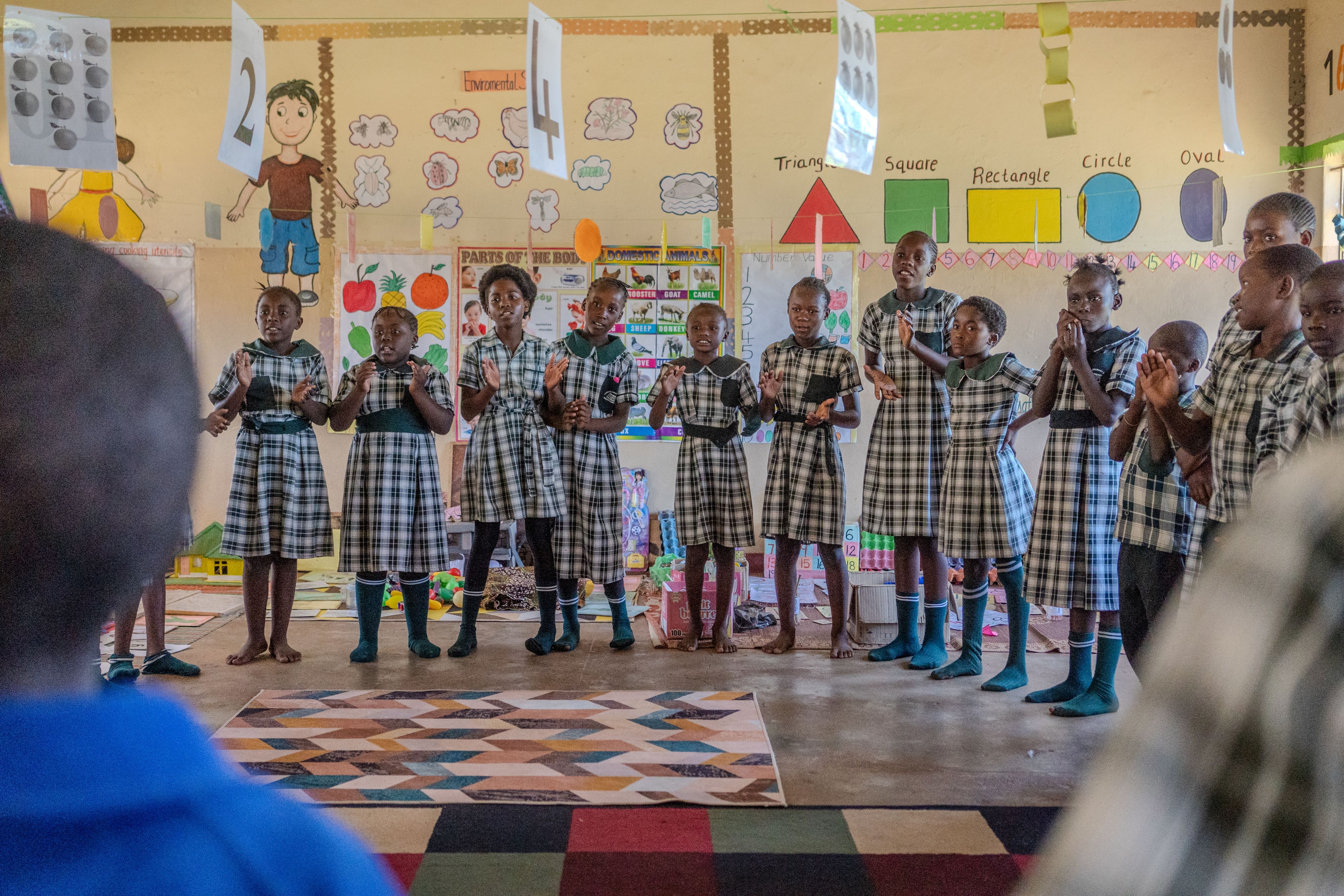
Catch Up uses the Teaching at the Right Level (TaRL) approach to improve literacy and numeracy skills through child-centred and playful classes. Students are grouped by skill level, not age or grade, ensuring tailored instruction. The programme employs play-based activities such as games, interactive exercises, and hands-on tasks to make learning engaging. For example, maths is taught through counting games, puzzles, and playful problem-solving tasks.
Simon, Frank’s father, says the education Catch Up provides is vastly different from what he received as a boy. He recalls setting off for school in the dark at 4 am, as the walk took 3 hours each way. Back then, there was no remedial support for slow learners. If you fell behind, that was it. Falling behind can no longer be an option says Felix Ngoma, adding that “Catch Up is a justice issue. The attitude of not leaving any child behind is important ... those not at the level they should be at are given an opportunity.”
Catch Up is a justice issue. The attitude of not leaving any child behind is important ... those not at the level they should be at are given an opportunity.
Felix Ngoma
Provincial Education Officer, Lusaka Province
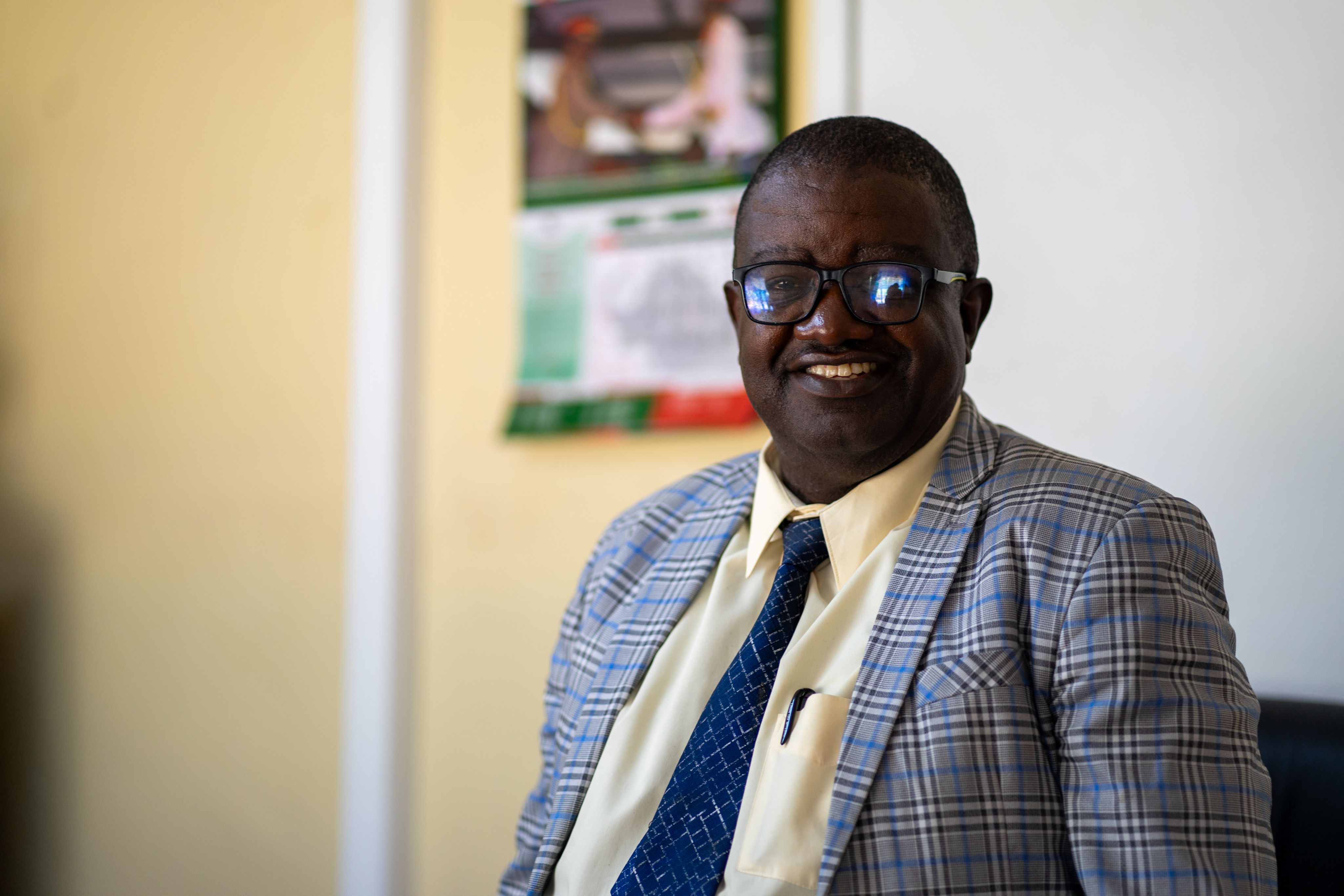

Providing quality early childhood education is crucial for preparing children for Grade 1. While Zambia's free education policy includes early childhood education, the quality needs improvement, as many teachers lack sufficient training. Through IT'S PLAY, teachers are receiving training on play-based learning, supported by coaches and master trainers who provide feedback and peer support. The focus on child-centred approaches equips teachers with strategies for active learning, individualised attention, and interactive methods, creating environments where children can explore, think critically, and initiate their own learning.
The Benefits of Play-based Learning
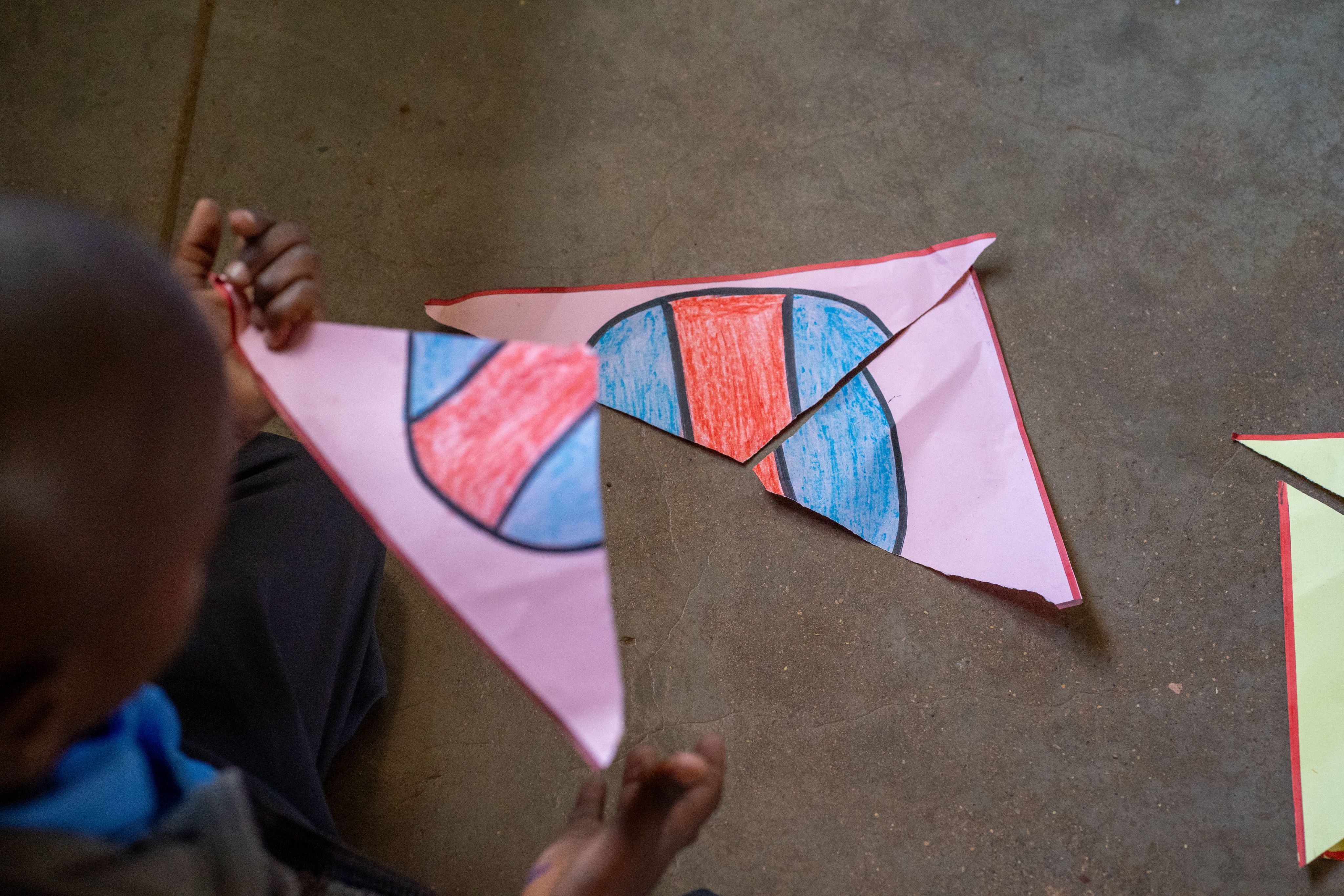
For Blessings’ teacher Emelda, the communication skills that the IT’S PLAY programme teaches are a source of pride as well as motivation to keep going. “Some of the learners cannot communicate when they start so I find that group work helps them to communicate, to express, to collaborate and to be creative,” she says, explaining how she groups her learners together and gives them problems to solve through play. “You will find that children who did not respond to you or even raise their hands when they started are now sharing with their friends. They are learning and collaborating with their friends. That makes me very happy as a teacher.”
"You will find that children who did not respond to you or even raise their hands when they started are now sharing with their friends."
Parental and community involvement is also vital for the success of education initiatives. Jane appreciates the proactive communication from Emelda, who keeps her informed and engaged in her granddaughter’s education. “The teacher’s kindness and dedication make a big difference. If I had such support when I was young, I would have stayed in school longer,” she reflects. Jane dropped out of school at Grade 6 and is determined to give Blessings a different future. Emelda also emphasises the importance of family and community support. She recalls how parents initially had reservations about play-based learning but have since become enthusiastic supporters after seeing the positive changes in their children. “Parents now see the value of play in education and are more supportive of our efforts,” she notes.
"The teacher’s kindness and dedication make a big difference. If I had such support when I was young, I would have stayed in school longer."
Teacher Emelda Musonda pictured outside her classroom at Harry Mwanga Nkumbula Primary School in Lusaka, Zambia.
Teacher Emelda Musonda pictured outside her classroom at Harry Mwanga Nkumbula Primary School in Lusaka, Zambia.
Teacher Emelda Musonda embedding play-based learning into her early childhood education class.
Teacher Emelda Musonda embedding play-based learning into her early childhood education class.
Teacher Emelda using locally available materials to enrich her play-based learning ECE classes.
Teacher Emelda using locally available materials to enrich her play-based learning ECE classes.
Jane Namwinga pictured with her 6-year-old granddaughter Blessings at Harry Mwanga Nkumbula Primary School in Lusaka, Zambia.
Jane Namwinga pictured with her 6-year-old granddaughter Blessings at Harry Mwanga Nkumbula Primary School in Lusaka, Zambia.
The Power of Play
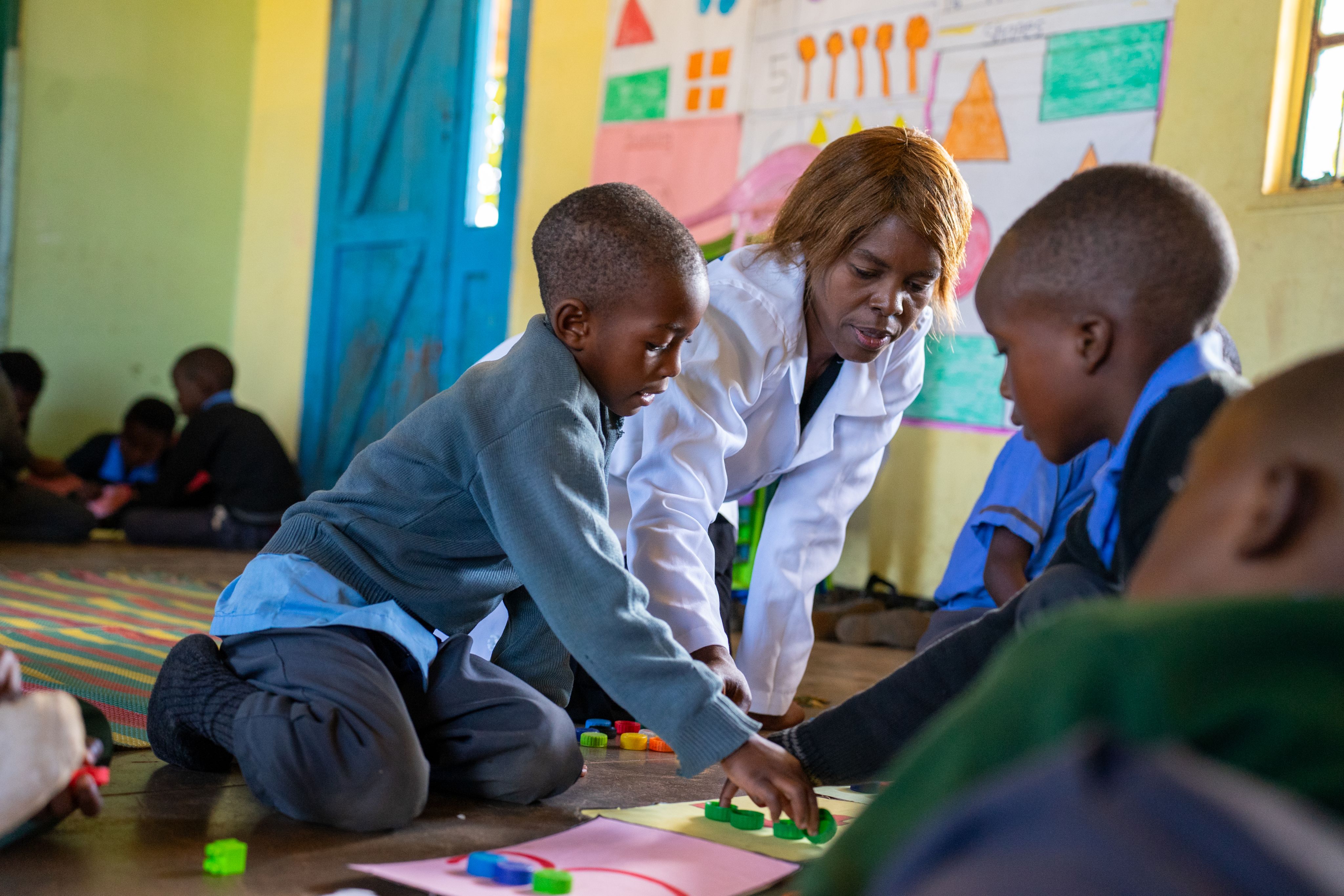
Thanks to the support of the LEGO Foundation, and the partnerships we have with The Ministry of Education in Zambia, Teaching at the Right Level Africa and UNICEF, initiatives like Catch Up and IT'S PLAY are making a significant difference in the lives of young learners.
As we continue to advocate for quality education, we invite you to read our technical brief on play-based learning to understand its impact and potential further. Together, we can ensure that every child has an opportunity to thrive through the power of play.
This article is an adaptation of the original published by VVOB on 11 June 2024.








